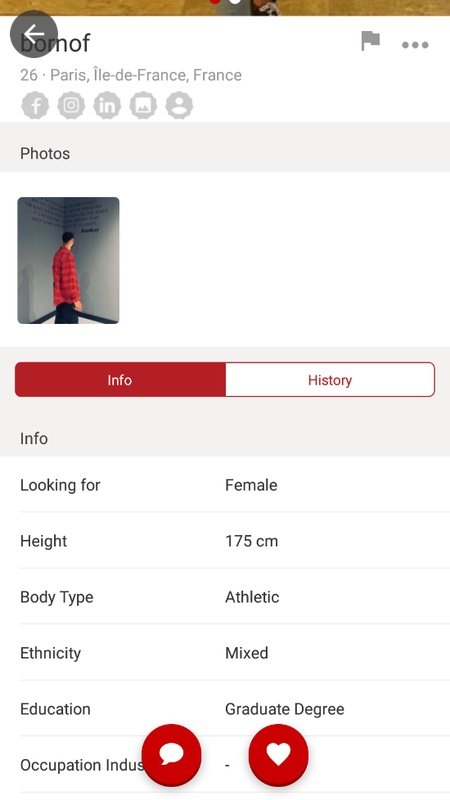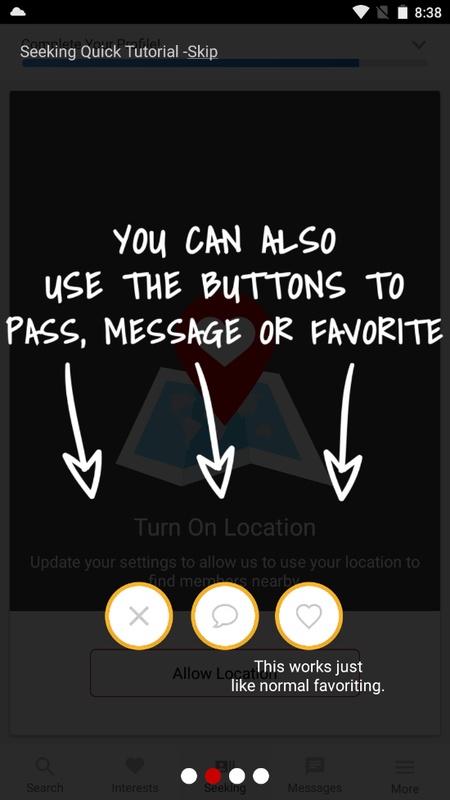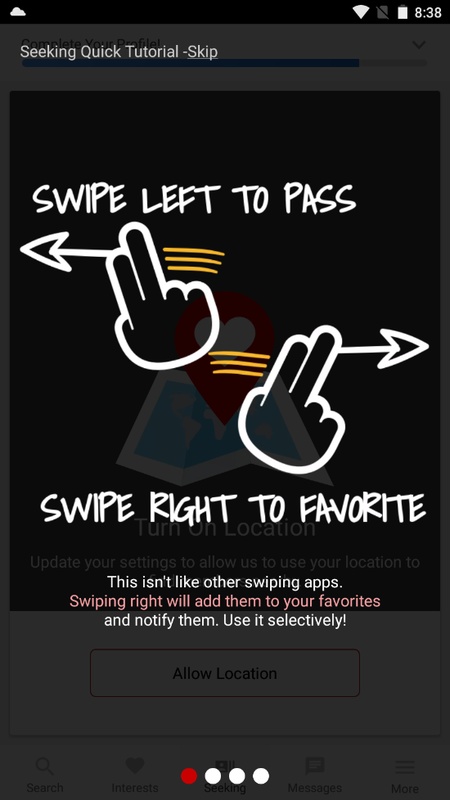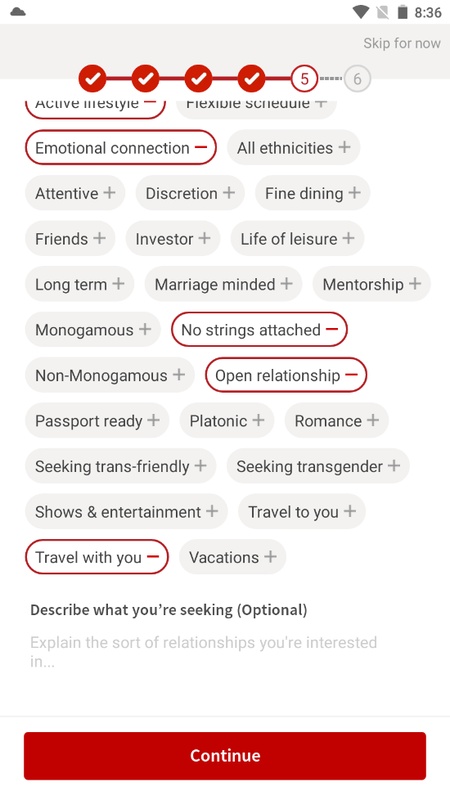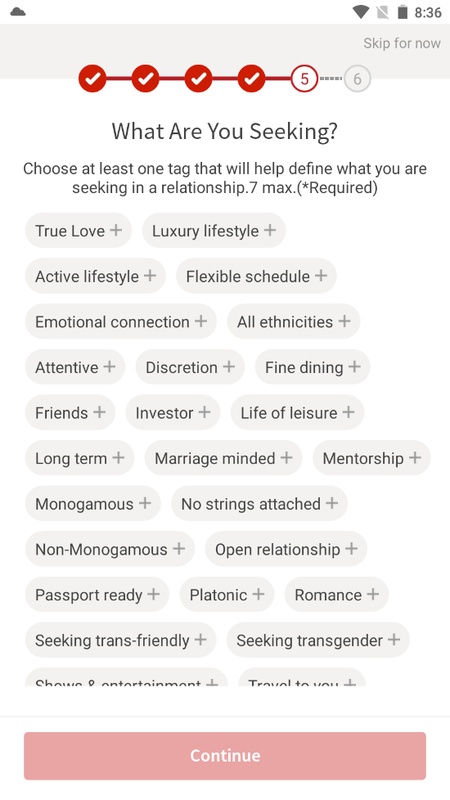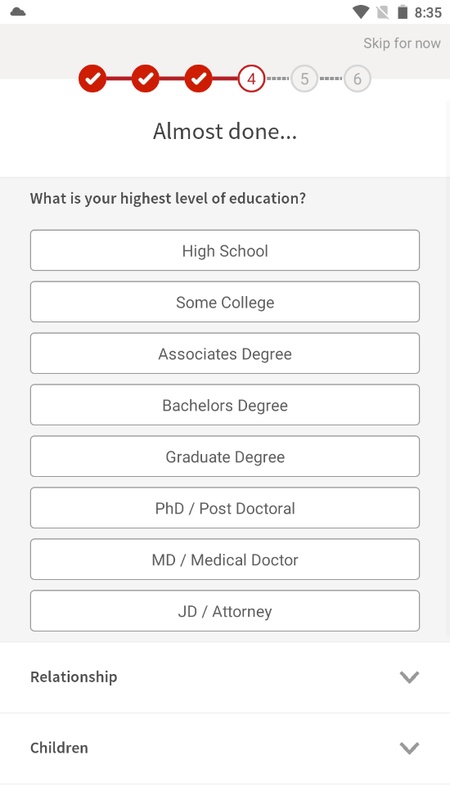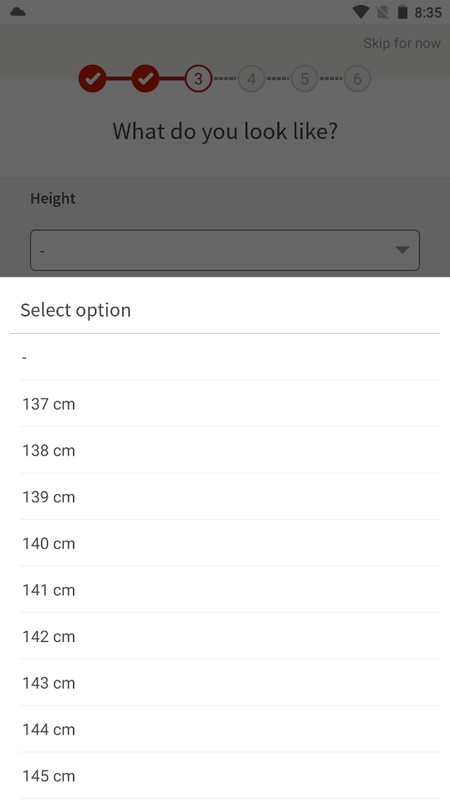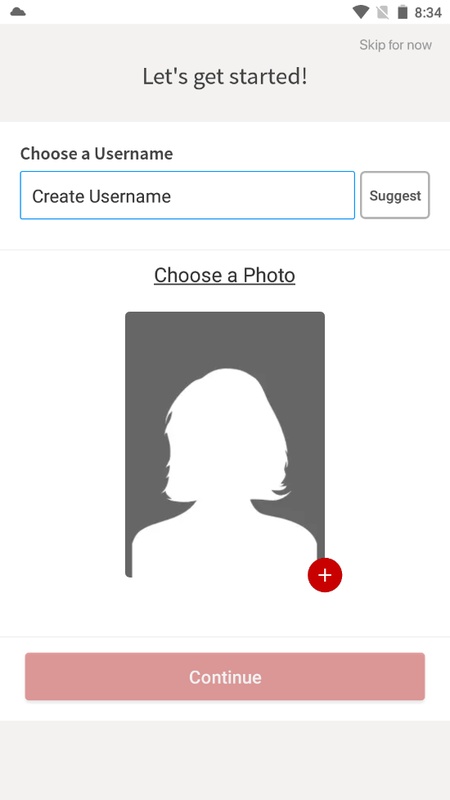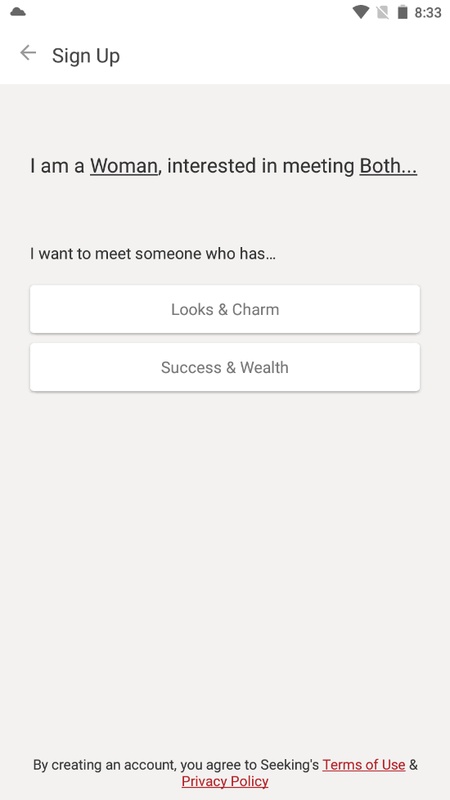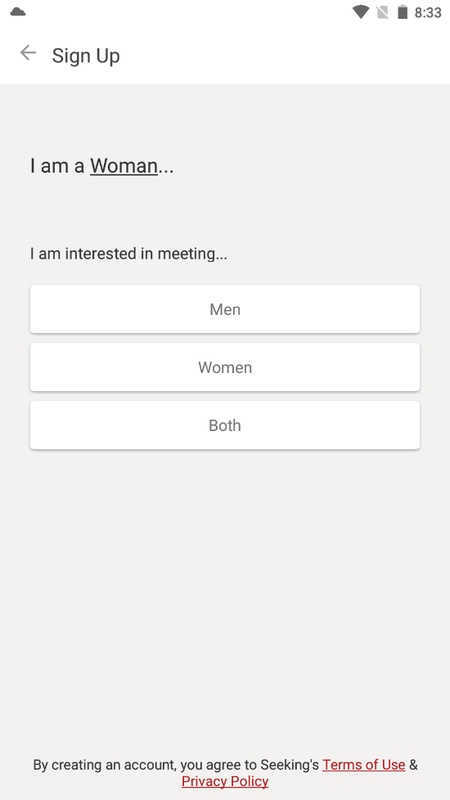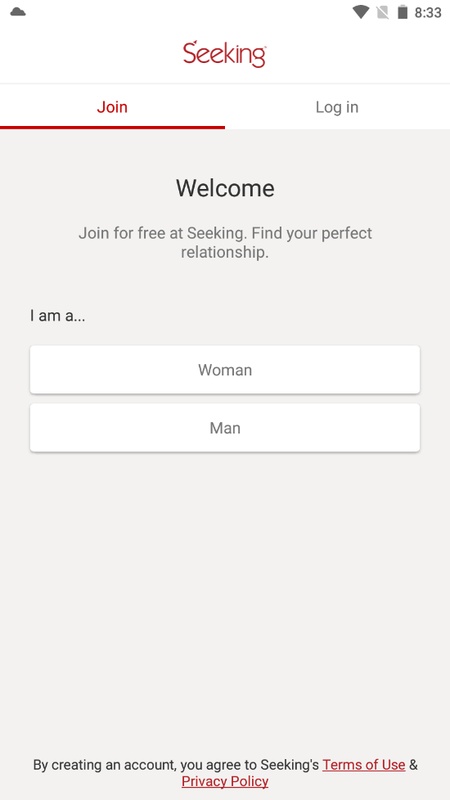
Seeking
Screenshot
Description
Content
Seeking is a dating app for people who enjoy a luxurious and elite lifestyle. This app connects you with successful people and millionaires who want to find love and share their experiences.
Profile verification
When you register on the app, you must answer a series of questions to create your profile, providing all the details you want. You can enter your personal preferences, the type of relationship you are looking for, and what makes you happy. Seeking is in charge of verifying that these profiles are real and honest about their expectations and high standard of living. This way, you'll be able to find like-minded people on Seeking once you have completed your profile.
Seeking, also known as Seeking Arrangement, was a controversial online dating platform that connected “Sugar Babies” and “Sugar Daddies” (and “Sugar Mommies”). The premise of the site revolved around transactional relationships where financial support was provided in exchange for companionship, and often, intimacy. While the platform marketed itself as a way for ambitious individuals to find mentors and financial assistance, it faced widespread criticism for facilitating relationships that blurred the lines between dating and sex work.
The typical Seeking arrangement involved a wealthy individual, the “Sugar Daddy” or “Sugar Mommy,” who provided financial support to a younger person, the “Sugar Baby.” This support could take various forms, including monthly allowances, gifts, travel expenses, tuition assistance, or help with rent. In return, the Sugar Baby provided companionship, attention, and often, romantic or sexual intimacy. The specifics of each arrangement were negotiated between the individuals involved, with the terms often outlined in a "sugar contract."
The platform attracted a diverse user base, with Sugar Babies often being students or young professionals seeking financial assistance, while Sugar Daddies and Mommies were typically older, established individuals with disposable income. Seeking claimed to facilitate mutually beneficial relationships, emphasizing that both parties entered into arrangements willingly and with clear expectations. However, critics argued that the power dynamics inherent in these relationships often favored the Sugar Daddy or Mommy, creating a potential for exploitation and coercion.
The website provided various features to facilitate connections, including profile creation, search filters, messaging systems, and blog posts offering advice on navigating sugar relationships. Users could specify their desired arrangements, income expectations, and relationship preferences. Seeking also implemented verification processes to ensure the authenticity of profiles and to deter scams.
Despite its attempts to portray itself as a legitimate dating platform, Seeking faced significant controversy throughout its existence. Critics argued that it normalized transactional relationships and promoted a culture of materialism and exploitation. Concerns were raised about the potential for young and vulnerable individuals to be pressured into compromising situations. The platform was also accused of facilitating sex work, although Seeking maintained that it prohibited prostitution and escort services.
The ambiguity surrounding the nature of sugar relationships fueled the debate surrounding Seeking. While some argued that it provided a platform for consensual arrangements between adults, others viewed it as a thinly veiled form of prostitution. The lack of clear legal definitions and regulations regarding sugar relationships further complicated the issue.
Seeking’s marketing tactics also drew criticism. The platform often targeted students struggling with student debt, suggesting that sugar relationships could provide a solution to their financial woes. This approach was seen as predatory and exploitative, taking advantage of vulnerable individuals facing financial hardship.
Over the years, Seeking faced legal challenges and regulatory scrutiny in various jurisdictions. The platform was forced to adapt its policies and marketing strategies in response to these challenges. In 2022, Seeking rebranded itself as Seeking.com and shifted its focus to "mutually beneficial relationships" rather than explicitly transactional ones. This rebranding effort aimed to distance the platform from its controversial past and present a more mainstream image.
Despite the rebranding, Seeking continued to face criticism and scrutiny. The underlying dynamics of the relationships facilitated on the platform remained largely unchanged, and concerns about exploitation persisted. The platform’s attempt to rebrand itself as a more conventional dating site was met with skepticism by many.
In conclusion, Seeking, despite its attempts to portray itself as a platform for mutually beneficial relationships, remained a controversial entity throughout its existence. The platform’s focus on transactional relationships, its marketing tactics targeting vulnerable individuals, and the inherent power dynamics in sugar arrangements fueled ongoing debate and criticism. While Seeking attempted to rebrand itself and distance itself from its controversial past, the fundamental nature of the relationships facilitated on the platform continued to raise ethical and legal questions.
Information
Version
4.81
Release date
Jul 01 2024
File size
63.10M
Category
Casual
Requires Android
Android 5.0 or higher required
Developer
W8 Tech Limited
Installs
46963
ID
com.infostream.seekingarrangement
Available on




